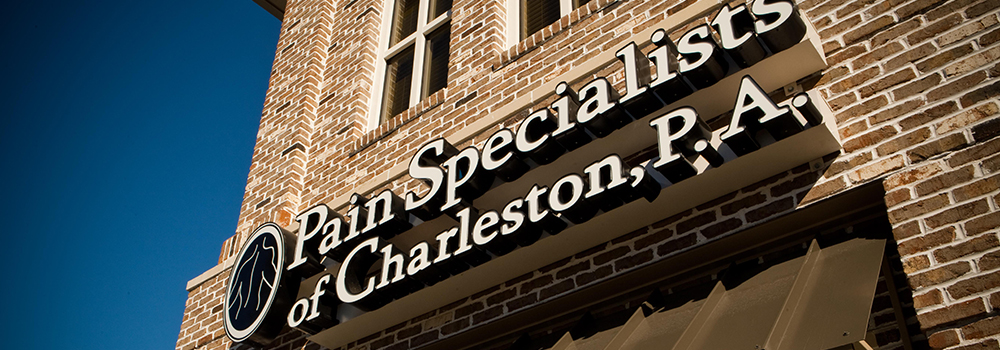Myofascial Pain Syndrome (MPS) is more than a painful knot in your neck or muscle tightness in your shoulder – it is a persistent and debilitating condition that can feel like your body’s tension is working against you.
MPS can lead to a deep, nagging pain that aims to disrupt your daily life and make even the simplest of movements feel challenging.
Is there any hope of living a life without the underlying pain of MPS rearing its head at every turn?
Keep reading to find out what our board-certified physicians at our pain management clinic have to say and how we can help following an MPS diagnosis.

Understanding Chronic Myofascial Pain Syndrome
Myofascial Pain Syndrome (MPS) is a condition that causes chronic pain and pressure in the muscles and the thin cover of tissue holding the muscles in place, called fascia.
MPS is typically confined to a specific area, and the pain often emits from muscle trigger points. Trigger points are areas where, when applied with pressure, will radiate pain.
What Causes MPS?
MPS is often attributed to the overuse of muscles, muscle trauma, or psychological stress. Repetitive motions, whether in employment or hobbies, can result in trigger points that lead to MPS.
Other factors that may contribute to symptoms of MPS include:
- Poor posture
- Long intervals of sitting in awkward or uncomfortable positions
- Lack of exercise or movement
- Lack of sleep
- Fatigue
- Hormonal changes, such as menopause
- Other pain or inflammatory conditions
- Obesity
- Smoking
Myofascial trigger points are often the result of a combination of contributing factors rather than a stand-alone issue.
Myofascial Pain Syndrome Symptoms
MPS is a chronic condition, meaning that long-term pain that does not heal on its own with rest and other self-care measures.
While deep and aching pain is a common symptom, it is not the only one to be on the lookout for. Other myofascial pain syndrome symptoms can include:
- Knot in the muscle that is tender to the touch
- Difficulty sleeping
- General feeling of not being well
- Weak, stiff, or inflexible muscles
- Fatigue
- Posture abnormalities, such as hunching or rounding the shoulders
If you are experiencing localized or extended bouts of muscle pain, seek the help of our Charleston pain management clinic to assess your symptoms and develop a treatment plan for pain management near you.
Myofascial Pain Syndrome Treatment: Is Interventional Pain Management the Answer?
After receiving a diagnosis that your muscle pain is more than a tight knot in your shoulder, a pain management physician will create a personalized treatment plan devised for your specific needs.
When undergoing our interventional treatment techniques for your pain management in Charleston, SC, there are many possible treatment approaches to your case of MPS.
Trigger Point Injections
Trigger point injections work similarly to dry needling, except a solution is injected directly into the fascia tissue. These injections will help relieve lingering pain and discomfort caused by MPS.
Transcutaneous Electronic Nerve Stimulation (TENS)
TENS is a treatment method that utilizes electrodes taped to the skin to send a tiny electrical current to the areas of pain.
Ultrasound Therapy
Ultrasounds are often heard of in conjunction with pregnancy, but they can be a useful therapy tool for those suffering from MPS. This therapy uses sound waves to increase the blood flow and warm the muscles, reducing pain in the process.
Massage Therapy
Given that trigger points associated with MPS are areas of increased muscle tension, massage therapy can aid in reducing stiffness and ease the pain. Common massage treatments that aim to relax myofascial trigger points include passive rhythmic release, active rhythmic release, shiatsu, and trigger point pressure release therapies.

Don’t Muscle Through the Pain–Contact Pain Specialists of Charleston Today
Myofascial Pain Syndrome is not a condition that you can just “muscle” through the pain and symptoms–it is a debilitating condition that can wreak havoc on your daily life in more ways than one.
At Pain Specialists of Charleston, we believe that you shouldn’t have to work through the tension and pain in your muscles–or rely on habit-forming drugs or surgery in attempting to ease your discomfort.
Your trusted local specialists take a non-surgical, customized approach to pain management to offer you much-needed relief. We’re open five days a week and accepting new patients – no referral needed! Schedule an appointment today!
Request Appointment | Meet Pain Doctors | Contact Us | Visit Us
Additional Helpful Articles:
What Should I Expect During My First Pain Management Appointment?
Interventional Pain Management: Everything You Need to Know
What Does a Pain Management Physician Do?
Can a Medical Massage Actually Relieve My Chronic Pains?
Why Do I Have Such a Stiff Neck When I Wake Up?
Why Do Side Sleepers Wake Up to Shoulder Pains?
How Serious is a Spinal Compression Fracture?
How Can I Get Immediate Relief for Sciatic Pain?
From Whiplash to Back Pain: Finding Pain Relief After a Car Accident
From Doing Laundry to Sleep Positions: Understanding Proper Body Mechanics
Back Pain While Driving: 10 Ways to Avoid Back Pain on Road Trip
Get to Know Pain Management Physicians:
Our Services:
Diagnosis | Treatment | Interventional Pain Management | TRICARE | Wellness | Clinical Trials | Worker’s Compensation | Neurology | Imaging/ MRI
Published January 2025
